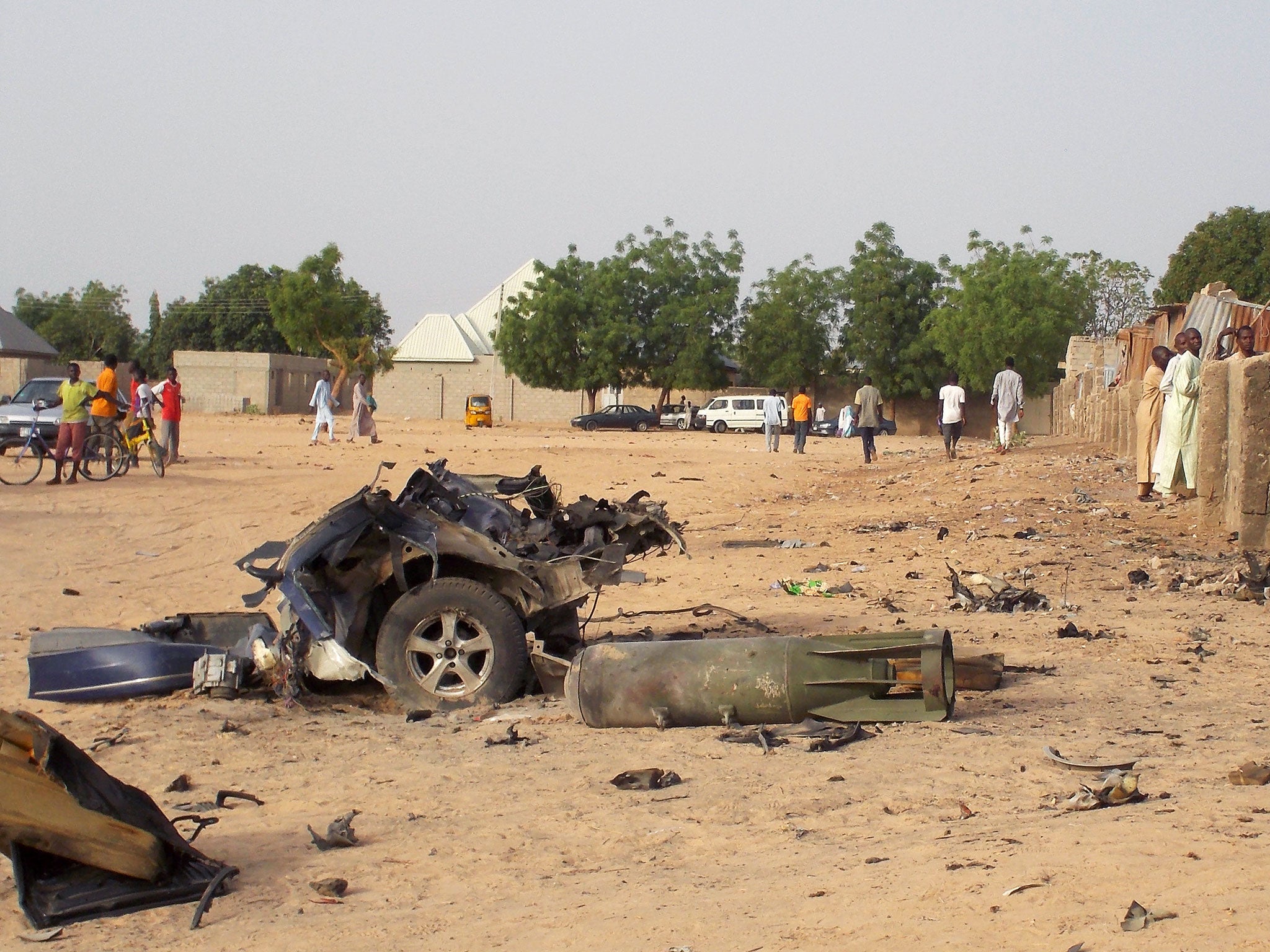Dozens dead after twin bomb blasts target worshippers outside mosque in Nigeria
Attack comes a day after the country's president met his US counterpart to discuss terrorism

Your support helps us to tell the story
From reproductive rights to climate change to Big Tech, The Independent is on the ground when the story is developing. Whether it's investigating the financials of Elon Musk's pro-Trump PAC or producing our latest documentary, 'The A Word', which shines a light on the American women fighting for reproductive rights, we know how important it is to parse out the facts from the messaging.
At such a critical moment in US history, we need reporters on the ground. Your donation allows us to keep sending journalists to speak to both sides of the story.
The Independent is trusted by Americans across the entire political spectrum. And unlike many other quality news outlets, we choose not to lock Americans out of our reporting and analysis with paywalls. We believe quality journalism should be available to everyone, paid for by those who can afford it.
Your support makes all the difference.Two explosions killed at least 28 worshippers at a mosque in north-eastern Nigeria and wounded at least 56 others, with many of the victims caught in the second blast while trying to flee, police said.
The attack in Mubi town came a day after President Muhammadu Buhari met with US President Donald Trump at the White House and discussed the threat from the Nigeria-based Boko Haram extremist group. Its fighters were quickly blamed for Tuesday’s blasts.
This is the second time in six months that dozens have been killed in an attack on a Mubi mosque. In November, a teenage suicide bomber attacked worshippers as they gathered for morning prayers, killing at least 50 people in one of the region’s deadliest assaults in years.
One resident, Isa Danladi, said he had been about to leave his house near the mosque when he heard the blast.
“The mosque roof was blown off and the prayer was midway when the bomber, who was obviously in the congregation, detonated his explosives,” Mr Danladi said. “This is obviously the work of Boko Haram.”
The National Emergency Management Agency coordinator in Adamawa state, Imam Abbani Garki, said 18 people were critically wounded and had been evacuated for treatment in Yola city.
Haruna Hamman Furo, the head of the state emergency management agency, called the attack “devastating”.
Boko Haram briefly took over Mubi in late 2014 as its fighters rampaged across the region, seizing towns and villages in its quest to establish a hardline Islamic state.
The military and civilian militia ousted the extremists from the town, which is a commercial hub near the border with Cameroon.
In recent months, Boko Haram activity has been concentrated in the far north of Adamawa state, around Madagali, near the border with Borno state. That area is not far from the Sambisa Forest area where the extremists had a stronghold.
Boko Haram fighters are also said to be hiding in the Mandara mountains to the east near Cameroon.
Join our commenting forum
Join thought-provoking conversations, follow other Independent readers and see their replies
Comments